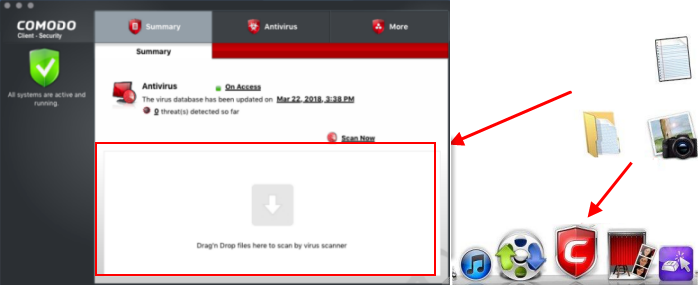Run a Scan
Click 'Antivirus' > 'Run a Scan'
- The 'Run a Scan' area lets you launch an on-demand scan on an item of your choice.
-
The item scanned can be anything you choose - your entire computer, a specific drive, or even a single file.
- You can also scan a wide range of removable storage devices, including external hard-drives, USB sticks, digital cameras and more.
Run an on-demand virus scan
- Open Comodo Client Security
- Click the 'Antivirus' tab
- Click
'Run a Scan' box
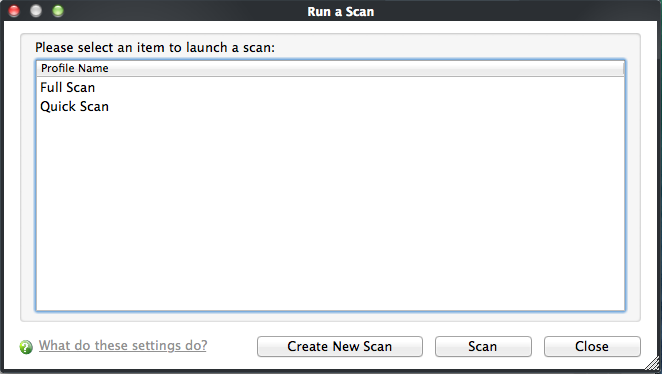
Choose one of the following options:
- Full Scan - Scans every drive, folder and file on your system, including external connected devices
- Quick Scan – Scans important operating system files, system memory, auto-run entries, registry keys and hidden services.
- Create New Scan – Create your own custom scan of specific files, folders or drives.
Click 'Scan' after making your selection (or just double-click the profile name).
You need to create a scan profile in order to run a custom scan. Once created, you can re-run the scan in future.
- Open Comodo Client Security
- Click the 'Antivirus' tab
- Click the 'Run a Scan' box
- Click 'Create New Scan'
- Type a name for your new profile. For example, 'My External Drives'
- Click 'Add' to choose files, folders or drives you want to include in the profile
- Repeat the process to add multiple items
- Click 'Apply'. Your new profile will be listed in the 'Run a Scan' dialog
- Select your new profile in the list and click 'Scan'
- Next, see:
|
Tip: Drag an item into the scan box on the 'Summary' screen for a quick scan. You can also drag items onto the CCS dock icon. |
| Tip: For more details on scan profiles, see Scan Profiles for more details. |
Before running the scan, Comodo
Client - Security will first check for AV database updates. If
updates are available they will be downloaded and installed.

The scan will begin immediately after updates have been installed.
The progress dialog shows you the profile name, the location that is currently being scanned, the start time and duration of the scan, the total number of objects scanned so far, and the number of threats found.

- Click the 'Pause' to suspend the task
- Click the 'Resume' to resume a paused task
- Click
'Stop Scan' to abort the scan process altogether.
Once the scan is complete, the results window opens:
The results screen lists the name and severity of all threats found:
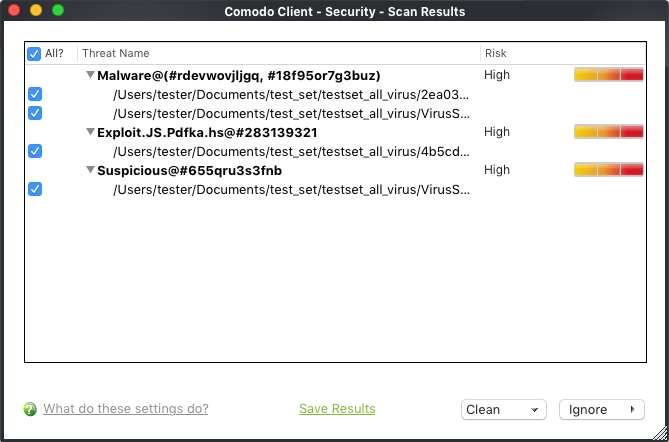
- Click the 'Threat Name' column header to sort results in alphabetical order
- Click the 'Risk' column header to sort results by risk level
- Select 'All' if you want to apply 'Clean' or 'Ignore' actions to every threat.
Save the scan results as a text file
- Click the 'Save Results' link on the bottom
- Type a name in the 'Save' dialog, enter the location and click 'Save'.
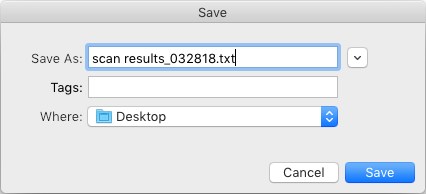
- Select the file from the results
- Click the 'Clean' drop-down and select 'Clean'
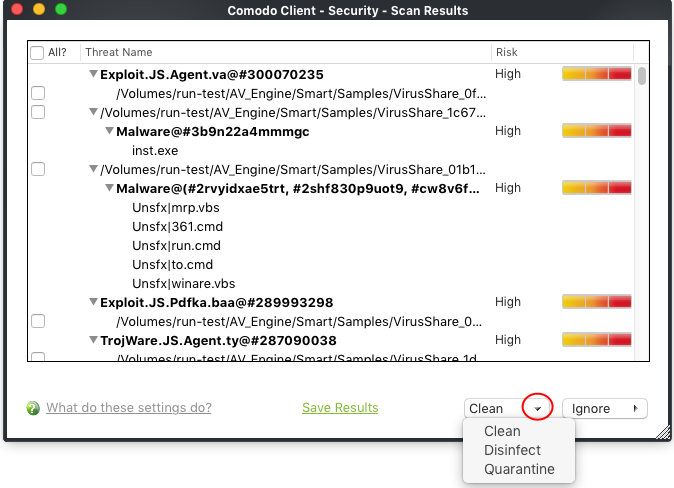
- Click 'Yes' in the confirmation dialog box:
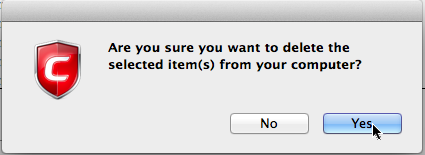
The file will be deleted
permanently from your system.
Move selected threats to quarantined
- Select the file from the results
- Click the 'Clean' drop-down and select 'Quarantine'.

- Click 'Yes' at the confirmation dialog box.
The selected file is moved to the Quarantined Items.
- Select the a file from the results
- Click the 'Clean' drop-down and select 'Disinfect'
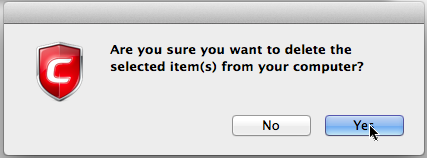
- Click 'Yes' at the confirmation dialog box
CCS will
disinfect the file if a disinfection routine exists. The file will be returned to its pre-viral state. If no disinfection routine is available, the file is deleted permanently from your system.
Ignore a result if you consider the file safe
- Checkbox the file from the results
- Click the 'Ignore' drop-down
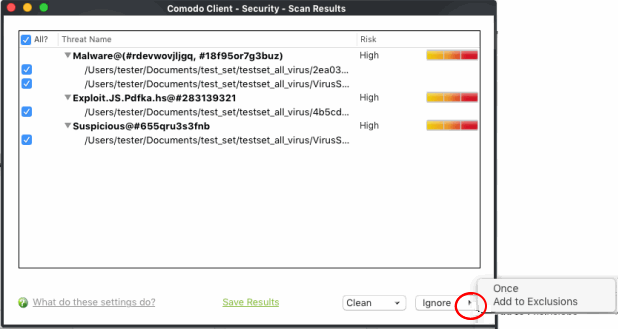
'Ignore'
provides you with two options:
- Once - The threat is ignored this time only. The virus scanner will detect the file as a threat on the next scan, and show another alert.
- Add to Exclusions - Create an exception for the file. The file is placed on the exclusions list and the scanner will not flag it as a threat on subsequent scans.
A custom scan profile is a scan of specific files, folders and drives. You choose which items are scanned, You can re-run your custom scan profile at any time.
- Open Comodo Client Security
- Click the 'Antivirus' tab > Click 'Run a Scan'
- Click 'Create New Scan'

'Add New
Profile' dialog opens:

- Type a name for the scan profile in the 'Name' box
- Click 'Add' to select the items you wish to include in the scan
- Repeat the process to create more scan profiles
- Click 'Apply'.
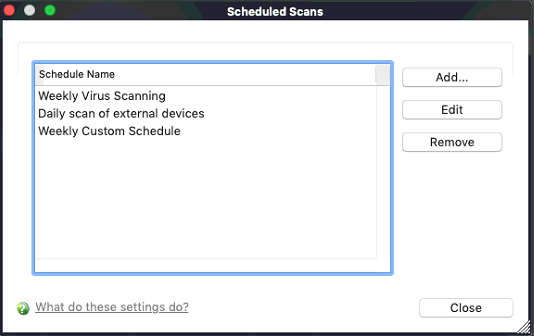
- Note 1: You can also create new Scan Profiles by accessing Scan Profiles in the 'Antivirus' task interface
- Note
2: Managed endpoints - Scan profiles should be configured in the
Endpoint Manager profile
Instantly scan objects
You can instantly virus scan virtually any file, folder, photo, application or hard-drive by simply dragging the item into the scan box on the summary screen or onto the Comodo icon on the dock.
